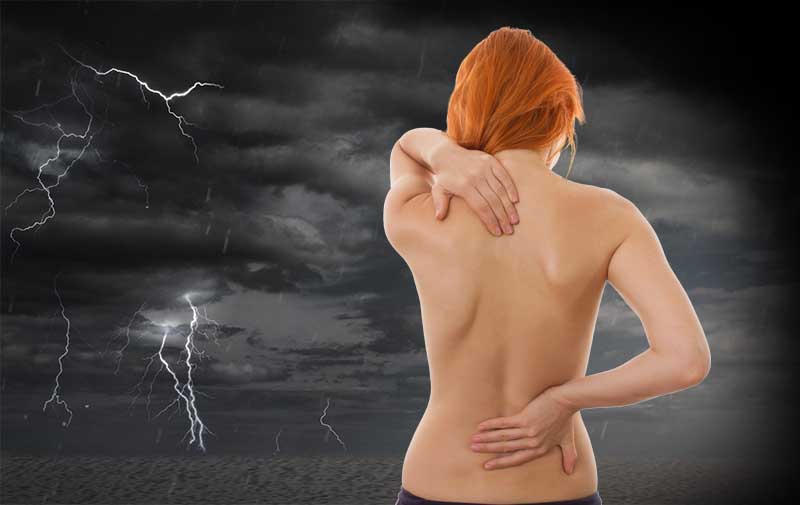Weather and Back Pain
Winter is just around the corner, and the cold weather is definitely here. My patients all complain that they have more pain with the cooler temperatures. While everyone believes cold weather, and stormy weather contributes to worsening arthritis pain, the scientific data can be conflicting at times.
In relationship to work activities, some population studies have shown an increased incidence of neck and back complaints in cooler weather.
Other studies have not seen an increase risk of back pain with weather changes.
I do know what my patients say.
1. Cold weather makes their back and neck pain worse
2. Increased humidity also increases the pain.
3. Barometric changes associated with worsening weather is also associated with the increasing pains.
For those patients effected by the above changes, it is likely the neck and back pain complaints are secondary to arthritis. Researchers are exploring the possibility that weather change complaints may also have a cultural, and therefore a psychological effect. The other possibility is that certain genetically similar populations may have susceptibility to weather related pain parameter changes while others do not.
To give an example, scientists have seen a trend that certain families will have more back pain and disability than others. After reviewing many data sets, it was determined that there is a family or hereditary component to the development of back pain. It has also been suggested that some of the disability identified in certain family’s are of a pattern consistent with a learned behavior. If this analogy is then compared to back pain and weather, there may be some cultural reasons why some complain of more back pain with the weather changes.
Regardless of the science of weather and back pain, for those who have back pain, please make sure to stretch, exercise, and modify activities. Thank goodness most episodes of back pain is temporary. If there is worsening pain, or if there is associated numbness, weakness, or severe incapacitating pain, please contact your physician immediately.
Last modified: January 5, 2018










